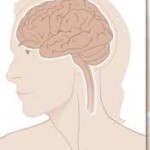
The Institute makes a distinction between a short-lived feeling of sadness that lasts several days, and a long-term condition that interferes with daily life.
The condition is treatable. The Institute cites medication and psychotherapy as effective treatments.
But recent research suggests that some treatments may come with harmful side effects. A number of studies indicate antidepressants classified as selective serotonin reuptake inhibitors, or SSRIs, may cause potentially harmful heart and lung defects in babies born to women who take them while pregnant.
SSRIs include Prozac and Zoloft.
NIMH lists the following forms of depression:
- Major depressive disorder, or major depression, is characterized by a combination of symptoms that interfere with a person’s ability to work, sleep, study, eat, and enjoy once-pleasurable activities. Major depression is disabling and prevents a person from functioning normally. Some people may experience only a single episode within their lifetime, but more often a person may have multiple episodes.
- Dysthymic disorder, or dysthymia, is characterized by long-term (two years or longer) symptoms that may not be severe enough to disable a person but can prevent normal functioning or feeling well. People with dysthymia may also experience one or more episodes of major depression during their lifetimes.
- Minor depression is characterized by having symptoms for 2 weeks or longer that do not meet full criteria for major depression. Without treatment, people with minor depression are at high risk for developing major depressive disorder.
Patients should consult their doctors before making any changes in their medication. A consultation with an SSRI lawyer is also important if there are significant injuries.
See more information about depression here:
https://www.nimh.nih.gov/health/publications/depression/what-is-depression.shtml
